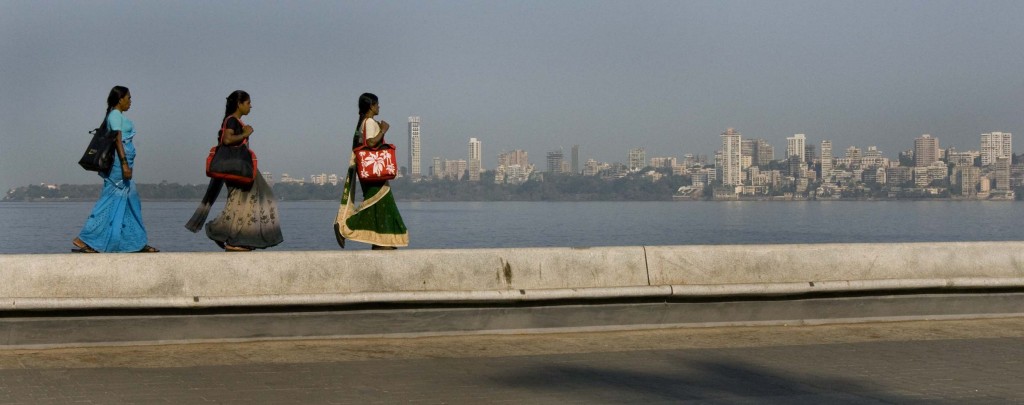Meghna Bhat, Chicago, USA, SSH Blog Correspondent

As I got into the car last week, my husband told me a segment on women’s rights in India that was going to start on NPR radio. As I tuned in, the correspondent spoke about how a group of young women in Mumbai started cultivating a movement called Why Loiter?
These young women believe that we (as women) should be able to hang out with friends or be alone in public spaces, just because we want to and feel like. We don’t need to give a possible reason to anyone! Women are often excluded from claiming public spaces in India on the pretext of keeping them safe. They are warned not to ‘loiter’ or ‘hang out’ in public spaces and if they are, a man or family should accompany them.
That’s when I remembered how many times I was told the same thing during my school and college days and when I worked at different places. “Don’t go out or stay late in the dark,” “That road is very deserted so take the alternate road where it’s brighter”, “Don’t loiter around- wait closer to a bus-stop so it looks like you are waiting for a bus”, “Talk to a friend on your cell phone if there’s a potential pervert walking around so he doesn’t approach you”, “Wear appropriate clothes if you are going out at this time”, “Avoid standing alone or with your girlfriends at this paan-shop (tobacco shop) or dhaaba (street diner)…people shouldn’t misunderstand you” and “don’t take the late night train home on this route as there are barely any commuters, so take the bus”. “Hanging out or loitering in public spaces just for fun, absolutely NOT!”
Did years of blindly and sincerely following these warnings and messages make us less exposed to sexual harassment — or what India calls ‘eve-teasing’? Did these measures lessen our experiences of being catcalled, groped or pinched, or being sexually assaulted and attacked by some men? The answer is NO.
I wonder how much time, mental stamina and efforts I and many other women have sub-consciously and unintentionally invested in avoiding being a target of harassment or unwanted unpleasant attention. Examples of changes include planning my daily schedule, deciding what public transport to take, figuring out what time to leave and return home, and what clothes to wear depending on what time of the day and which neighborhood. There is an underlying implication that we are likely to be at risk for sexual harassment or assault if we wander outside our homes and we need to stop loitering out in public spaces to keep ourselves safe.
My parents never necessarily gave this advice to us (my younger sister and me) but these were the very obvious strong messages that we as Indian girls and women have been conditioned to hear from our society and popular culture such as films and TV serials. Don’t get me wrong- the advice is well intentioned from a parents’ perspective and it is overall good to take precautions, but these messages are mostly pelted to girls than boys. What messages are we giving to our young girls and boys? Who are likely to be ‘victims’? In India, the gender-biased advice, policing and curfew for the safety of girls and women is likely to stem from deeply embedded cultural norms and practices of raising daughters in the past.
The Why Loiter? movement was drawn from the book written by Shilpa Phadke, Sameera Khan and Shilpa Ranade (2011). This powerful book, based on the research between 2003 and 2006 in the City of Mumbai, highlights how the 21st century Indian society deals with women’s safety. The authors argue how women from different castes, social classes, neighborhoods and communities in Mumbai have been excluded from many public avenues and additionally, have to plan and negotiate their lifestyle, daily schedule, transport and work to prevent from being at risk everyday. Grounded in feminist perspectives, the authors further suggests that “loitering should be celebrated, not reviled, as an act that offers possibilities for a more inclusive city where all people have a right to city public spaces.”
Even though I have been living away from my hometown for the past 11 years, I wish I had come across a similar movement that encouraged young girls and women in Mumbai to claim public spaces without negotiating, hangout with girl friends just for fun, take a nap in the park, to chit chat until late night, and to enjoy food at street diners. So, after I read the book Why Loiter? in 2013, I started researching if there were similar social movements. One particular fascinating example that I came across is the #GirlsAtDhabas that young girls and women in Karachi, Pakistan, are promoting. I say, more power to these girls and women!
By focusing on young girls and women’s rights in India, this blog does not intend to trivialize the daily sexual harassment and structural violence our transgender and LGBTQI friends in our cities encounter in these same public spaces. Is it not possible to share these public spaces for everyone to hang out, loiter or just enjoy a late night ice cream at the neighborhood stall, without being stared at, questioned, judged, or harassed and policed?
Meghna is a doctoral candidate in the Criminology, Law, and Justice program at the University of Illinois at Chicago, with a specialization in Gender and Women Studies. She is currently working on her dissertation, which focuses on representations of violence against women in a widely viewed form of Indian popular culture, Bollywood cinema.
